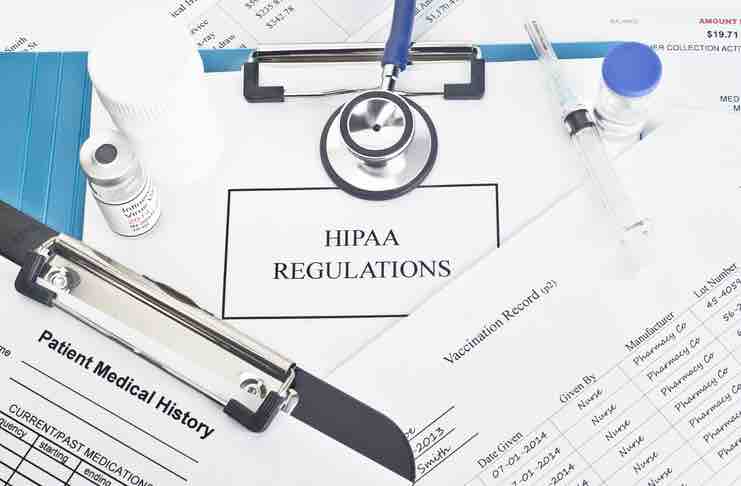
Are you one of our readers in the U.S looking to venture into Healthcare Franchises? You’ve reached the right place. The Health Insurance Portability and Accountability Act (HIPAA) became law in 1996. It was a response to numerous incidents of a serious breach of the privacy and confidentiality of patients’ health information. The HIPAA seeks controls on individuals, organizations, and agencies involved in handling health information of patients and healthcare clients. Not too many people know that even healthcare franchises and businesses are required to comply with HIPAA. They’re liable for the same violations, and many of them don’t even know it.
If you want to know more information about the HIPAA Rules, you can check updates from this and other similar sites. Here are a few things to know about compliance for healthcare franchises:
1. HIPAA Covers More Than Hospitals And Healthcare Entities
The HIPAA doesn’t only cover hospitals and healthcare facilities. The HIPAA isn’t just limited to hospitals and doctors. The law’s requirements to take care of the safety and confidentiality of patient information aren’t only imposed on healthcare plans and providers.
Those requirements should also be followed and observed by business associates such as law offices, attorneys, accountants, medical consultants, financial advisors, tax consultants, insurance agents, and many more who handle patient data and information. Their access and handling of health information place them under the same obligation to observe all the rules and regulations provided in the HIPAA.
But it seems that healthcare franchises and other business associates aren’t aware of the need to comply with HIPAA regulations. The simple criterion of the HIPAA on who needs to comply is that any person or entity who collects, shares, receives, or has access to sensitive electronic protected health information (ePHI) has to comply with HIPAA.
2. What Are Covered Entities
The HIPAA states that ‘Covered Entities’ have to comply with the HIPAA Rules. Among the covered entities are the following:
- Healthcare Providers – Health care providers are those health professionals that provide health care examination and medication services such as surgery and medical devices. The following are examples of health care providers:
- Doctors
- Dentists
- Pharmacies
- Clinics
- Psychologists
- Nursing Homes
- Chiropractors

- Health Plans – It includes private insurance companies and healthcare franchises which provide healthcare coverage, such as HMOs. It also includes state-funded programs such as Medicare and Medicaid.
- Healthcare Clearinghouses – These are offices that process health information, whether in standard electronic or data content format. They’re required to comply with HIPAA.
According to this Nursing Agency in London, other healthcare franchises aren’t explicitly and specifically enumerated. But it’s quite obvious that they fall under the same categories mentioned. Among these entities are hospitals, health plan billing services, drug card sponsors, health card makers, and processing services. Entities involved in providing healthcare, processing billing information, and furnishing health services in the regular course of business are also included.
3. Business Associates Have To Comply
Aside from Covered Entities, another are groups or categories of individuals and organizations who have to comply with the HIPAA Rules. They’re individuals, businesses, or organizations who might not be directly in the business or franchise or providing healthcare.
But they are service providers who give support work to hospitals, healthcare providers, and healthcare organizations. Because of the nature and dynamics of their work, they would often gain access to, view, handle, process, or even transmit sensitive protected health information.
The Health and Human Services (HHS) states that covered entities who deal with business associates to help them in carrying out their healthcare functions and activities should have a written contract or agreement with such business associates. They should clearly spell out in their written contracts or agreements what exactly they hire the business associates to do.
In fact, the HHS goes on to say that these business associates are separately liable on their own, to comply with the HIPAA Rules apart from the provisions of the contract they signed with the covered entities. They are subject to the same rules and can be meted the same fines and penalties for violations. But a number of business associates doing work for covered entities are still unaware that they also need to comply with the HIPAA Rules on their own.
Conclusion
To avoid becoming liable for violations, healthcare franchises should seriously consider sorting out their compliance with the HIPAA Rules and regulations. Many of them go about their business and professions without any idea. Some even enter into contracts with hospitals, healthcare providers, and healthcare companies. The HHS has made crackdowns on those who don’t comply, and the fines have been in the millions of dollars.
Arun is an avid blogger and business expert. He’s been in business from the moment he finished school and hasn’t stopped growing ever since.




